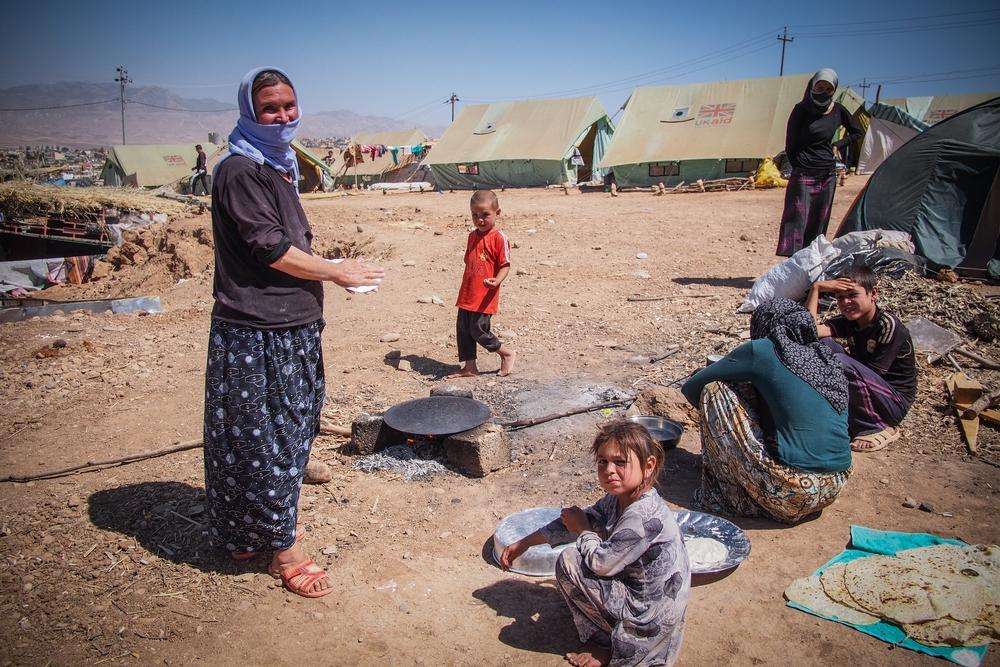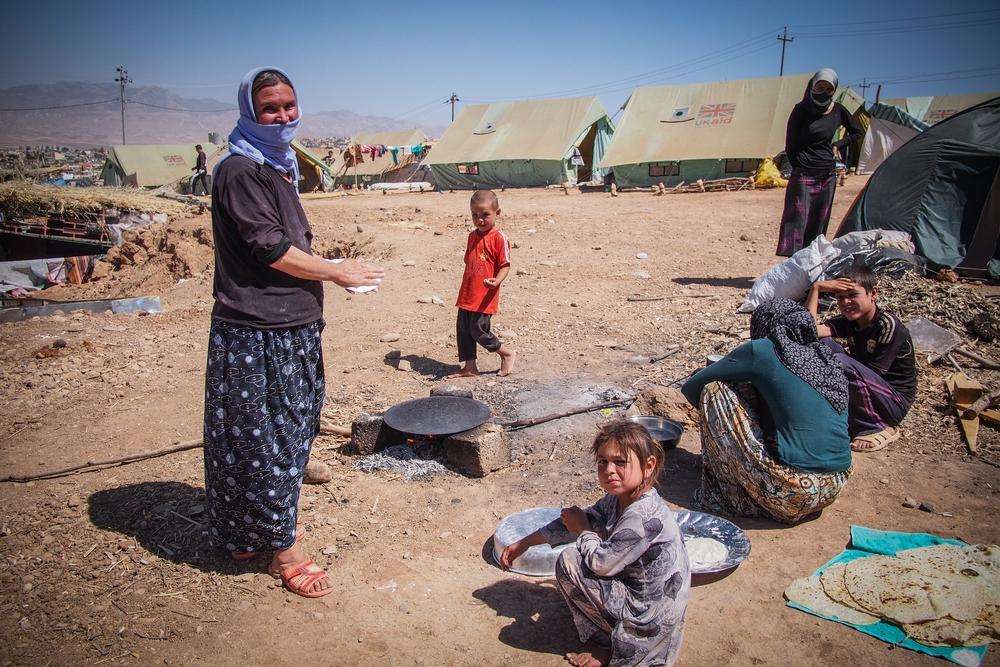Since January 2014, violence in Iraq has driven an estimated 1.8 million people from their homes, according to official figures. Nearly half of them are taking refuge in schools, camps, or unfinished buildings in the Kurdish Regional Government (KRG).
Their situation remains extremely precarious, however. Some 465,000 displaced people have poured into just the KRG’s Dohuk governorate, where local authorities are struggling to cope with their increasing needs. Displacement camps are being built, but only one is ready thus far, meaning that most people are trying to endure overcrowded and unsanitary living conditions at a time when temperatures are starting to drop ahead of winter.
VIEW A PHOTO SLIDESHOW ON IRAQ'S DISPLACED
Doctors Without Borders/Médecins Sans Frontières (MSF) is reinforcing its activities to try and cope with the medical needs. In Dohuk, MSF is carrying out medical consultations in three mobile clinics and in one of the most poorly equipped camps, in Zakho, an MSF team is preparing to install latrines, showers and washing areas to reduce the risk of an epidemic.
In nearby Kirkuk, MSF is running medical activities in two locations, a mosque in the center of town and a church. A team composed of two doctors and two nurses has carried out more than 600 consultations since the start of October.
READ TESTIMONIES FROM THE DISPLACED
In central Iraq, the humanitarian situation is also similarly alarming. Hundreds of thousands of people remain trapped in conflict-ridden areas controlled by rebel forces, largely unable to flee. There are some 370,000 displaced people in Anbar governorate alone, where security conditions are preventing the delivery of humanitarian assistance to trapped populations.
In Anbar, MSF has been supporting the main hospital in Heet, an area where there’s been heavy fighting between the Islamic State (IS) and the Iraqi Army. The city, which had been one of the last safe havens for people fleeing violence elsewhere in Anbar, is home to more than 100,000 displaced people. MSF has helped carry out more than 700 medical consolations each week and sent in hygiene kits for displaced families last month.
All told, MSF teams have provided more than 3,500 consultations to displaced people across Iraq over the past month. MSF will continue to make every effort to increase its activities to further support the population.
Despite the ongoing conflict in Iraq, MSF is striving to provide medical care to the Iraqi people, as well as Syrian refugees in Iraq. MSF has worked continuously in Iraq since 2006, in various locations in the north and south of the country. In order to ensure its independence, MSF does not accept funding from any government, religious committee, or international agency for its programs in Iraq, and relies solely on private donations from the general public around the world to carry out its work. MSF currently employs over 300 staff in Iraq.





